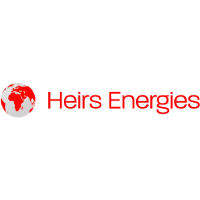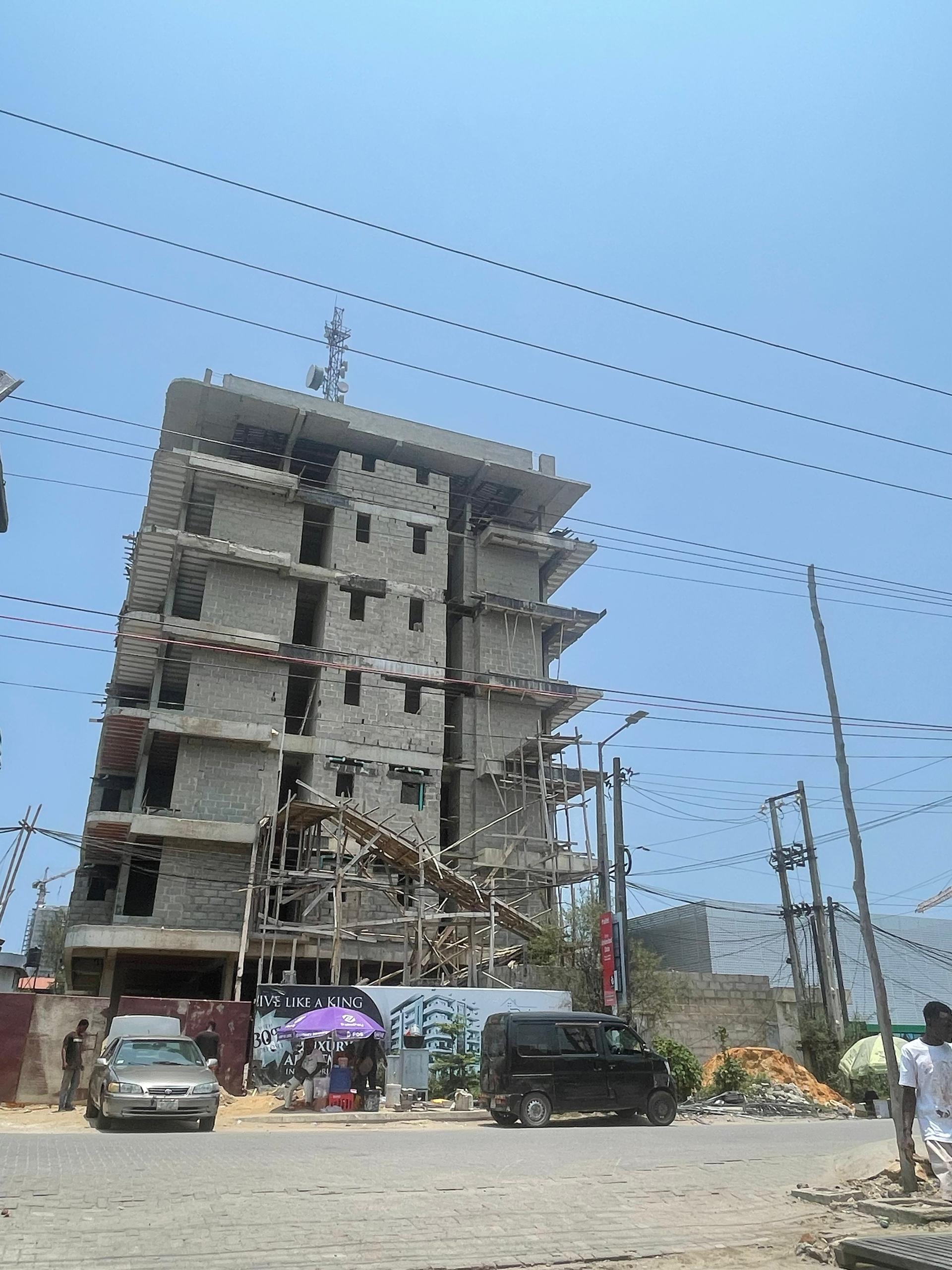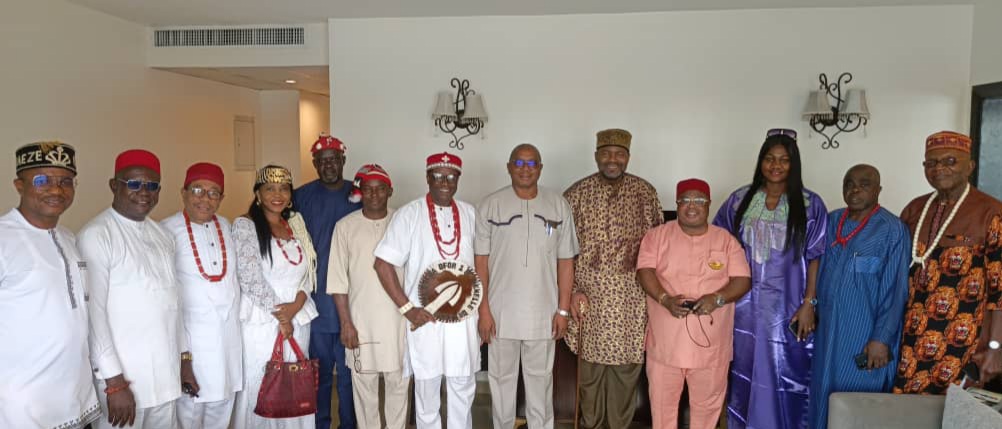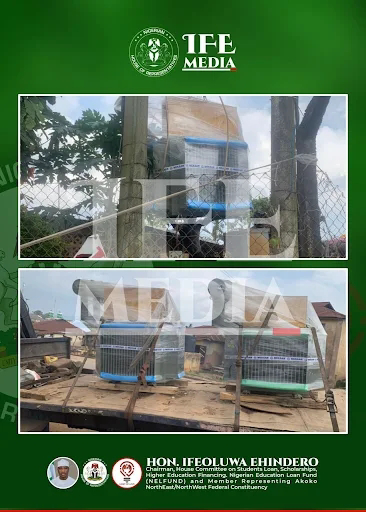On Thursday, August 28, 2025, Heirs Energies Limited, a leading indigenous energy company in Nigeria, hosted a high-profile media briefing at its headquarters in Lagos, reinforcing its commitment to driving energy growth and advancing community development across the country. The event, attended by representatives from over 50 major media outlets, provided a platform for candid discussions on the company’s milestones, challenges, and ambitious plans for the future. Led by Executive Director and Chief Financial Officer Sam Nwanze and Chief Executive Officer Osa Igiehon, the briefing highlighted Heirs Energies’ transformative impact on Nigeria’s oil and gas sector, its innovative strategies, and its dedication to fostering sustainable development. This article delves into the key takeaways from the event, the company’s contributions to Nigeria’s energy landscape, and its broader vision for Africa.
A Platform for Transparency and Engagement
The media briefing was a significant moment for Heirs Energies, offering an opportunity to engage with the media, a critical stakeholder in shaping public perception and fostering transparency. The attendance of over 50 major media outlets, including print, broadcast, and digital platforms, underscored the company’s growing influence and its commitment to open dialogue. The session was designed to provide insights into Heirs Energies’ operations, challenges, and aspirations, fostering a deeper understanding of its role in Nigeria’s energy sector.
Sam Nwanze, the Executive Director and Chief Financial Officer, set the tone for the event with a compelling presentation titled “The Heirs Energies Story: From Vision to Impact.” His address outlined the company’s journey since its inception, emphasizing its rapid growth and transformative achievements in the oil and gas industry. Nwanze’s presentation was followed by remarks from CEO Osa Igiehon, who addressed sectoral challenges and articulated the company’s vision for sustainable growth and community empowerment. The candid nature of the discussions, coupled with the company’s willingness to engage with the media, highlighted its commitment to transparency and accountability.
Revitalizing OML 17: A Remarkable Turnaround
One of the centerpiece achievements highlighted during the briefing was Heirs Energies’ revitalization of Oil Mining Lease (OML) 17, a major oil and gas asset acquired by the company. Nwanze detailed how, within just 100 days of acquisition, Heirs Energies successfully brought over 100 dormant wells back into production. This rapid turnaround demonstrates the company’s operational efficiency and technical expertise, positioning it as a leader in brownfield redevelopment.
The revitalization of OML 17 also stabilized terminal delivery levels, achieving operational reliability of between 95 and 100 percent. This milestone is particularly significant in Nigeria’s oil and gas sector, where aging infrastructure and operational inefficiencies have long hampered production. By restoring dormant wells and optimizing delivery, Heirs Energies has contributed to Nigeria’s energy security, ensuring a steady supply of crude oil to domestic and international markets.
The success of OML 17 underscores Heirs Energies’ “Brownfield Excellence” model, which focuses on revitalizing existing assets through innovative technology, operational efficiency, and home-grown expertise. This model has enabled the company to maximize the value of underperforming assets, delivering significant returns for stakeholders while contributing to Nigeria’s economic growth.
A Strategic Focus on Gas Development
In addition to its achievements in crude oil production, Heirs Energies has intensified its focus on natural gas, a critical component of Nigeria’s energy transition strategy. Nwanze announced that the company has commissioned the Agbada Non-Associated Gas Plant, a major milestone that has boosted its gas output to over 100 million standard cubic feet per day (MMSCFD). This achievement has positioned Heirs Energies as a key supplier to the Eastern domestic gas market, supporting Nigeria’s efforts to leverage its vast gas reserves for power generation, industrial use, and economic diversification.
Nigeria is estimated to have over 200 trillion cubic feet of natural gas reserves, making it one of the world’s largest gas resource holders. However, the country has struggled to monetize these reserves due to infrastructure deficits, regulatory challenges, and underinvestment. Heirs Energies’ investment in the Agbada Non-Associated Gas Plant reflects its commitment to addressing these challenges and unlocking the potential of Nigeria’s gas sector.
The company’s gas strategy aligns with the Federal Government’s “Decade of Gas” initiative, which aims to position Nigeria as a global leader in gas production and utilization. By ramping up gas output, Heirs Energies is contributing to domestic energy security, reducing reliance on imported fuels, and supporting industrial growth in the Eastern region. The company’s focus on gas also positions it as a key player in Nigeria’s transition to cleaner energy sources, as natural gas is seen as a transitional fuel in the global shift toward renewables.
Addressing Sectoral Challenges
In his concluding address, CEO Osa Igiehon provided a candid assessment of the challenges facing Nigeria’s oil and gas sector, including crude oil theft, infrastructure sabotage, and regulatory uncertainty. These issues have long plagued the industry, resulting in significant revenue losses and production disruptions. For instance, oil theft and pipeline vandalism are estimated to cost Nigeria billions of dollars annually, with production levels often falling below the country’s OPEC quota.
Igiehon emphasized the critical role of indigenous companies like Heirs Energies in safeguarding Nigeria’s energy security. Unlike international oil companies (IOCs) that have divested from onshore and shallow-water assets, Heirs Energies, as a wholly Nigerian-owned company, is deeply committed to the country’s development. Igiehon highlighted the company’s resilience in operating within a challenging environment, adhering to international standards of safety, governance, and operational excellence.
A notable achievement cited by Igiehon was Heirs Energies’ safety record, with over 1.5 million man-hours without a lost-time injury. This milestone reflects the company’s dedication to maintaining high safety standards, a critical factor in an industry where operational risks are significant. By prioritizing safety and governance, Heirs Energies is setting a benchmark for other indigenous operators, demonstrating that local companies can compete on a global stage.
Community Development: A Core Pillar of Africapitalism
Heirs Energies’ commitment to community development was a central theme of the media briefing, reflecting its alignment with the Africapitalism philosophy championed by its founder, Tony Elumelu. Africapitalism emphasizes the role of the private sector in driving economic growth and social impact, prioritizing investments that create shared value for communities and businesses.
The company showcased a range of community initiatives, including training programs for 300 youths, 280 scholarship awards, and medical interventions that have benefited over 20,000 individuals. Additionally, Heirs Energies has rehabilitated 4,500 square meters of roads in its host communities, improving infrastructure and connectivity. These initiatives demonstrate the company’s commitment to empowering local populations and fostering inclusive growth.
Through a collaboration with the Tony Elumelu Foundation, Heirs Energies has empowered over 1,000 indigenes of Rivers State with entrepreneurial opportunities. This partnership provides training, mentorship, and funding to aspiring entrepreneurs, enabling them to start and grow businesses. By investing in human capital and economic empowerment, Heirs Energies is addressing the socio-economic challenges facing its host communities, particularly in the Niger Delta, where oil activities have often led to environmental degradation and social unrest.
These community development efforts align with the Petroleum Industry Act (PIA) of 2021, which mandates oil companies to contribute to host community development through funding and infrastructure projects. Heirs Energies’ proactive approach to community engagement sets it apart as a leader in corporate social responsibility, fostering goodwill and reducing the risk of unrest in its operating areas.
Expansion Plans and Regional Ambitions
Looking ahead, Heirs Energies unveiled ambitious plans to expand its operations beyond Nigeria, targeting markets in Namibia, Senegal, Angola, and other African countries. This expansion strategy leverages the company’s Brownfield Excellence model and home-grown expertise, positioning it as a pan-African energy leader. The move reflects a growing trend among Nigerian companies to explore opportunities across the continent, capitalizing on the African Continental Free Trade Area (AfCFTA) to drive intra-African trade and investment.
The company’s expansion plans are supported by its track record of operational success and its ability to navigate complex operating environments. By applying its expertise in brownfield redevelopment to new markets, Heirs Energies aims to unlock the potential of underperforming assets across Africa, contributing to energy security and economic growth. The company’s focus on gas development also positions it to tap into the growing demand for natural gas as a transitional fuel in Africa’s energy mix.
Commitment to Transparency and Media Engagement
Heirs Energies’ media briefing underscored its commitment to transparency and consistent engagement with stakeholders. The company’s decision to invite over 50 media outlets to its headquarters reflects its openness to scrutiny and its desire to build trust with the public. By sharing detailed insights into its operations, challenges, and aspirations, Heirs Energies is fostering a culture of accountability that is rare in Nigeria’s oil and gas sector.
The company also announced plans for future facility tours, which will provide media and stakeholders with deeper insights into its operations. These tours will showcase Heirs Energies’ infrastructure, safety practices, and community initiatives, further enhancing its reputation as a transparent and responsible operator. This proactive engagement with the media is a strategic move to shape public perception and counter negative narratives about the oil and gas industry.
The Broader Context: Nigeria’s Oil and Gas Sector
Nigeria’s oil and gas sector is the backbone of the country’s economy, contributing over 80 percent of government revenue and 90 percent of export earnings. However, the sector faces significant challenges, including declining production, oil theft, and regulatory uncertainties. The PIA has introduced reforms to address these issues, but implementation remains a work in progress. Indigenous companies like Heirs Energies are playing a critical role in filling the gap left by IOCs, which have increasingly divested from onshore assets to focus on deepwater and gas projects.
Heirs Energies’ success in revitalizing OML 17 and boosting gas production highlights the potential of indigenous operators to drive growth and innovation. By leveraging local expertise and aligning with global standards, the company is demonstrating that Nigerian firms can compete effectively in a complex industry. Its focus on community development also addresses longstanding grievances in the Niger Delta, fostering stability and enabling sustainable operations.
Implications for Nigeria’s Energy Future
Heirs Energies’ achievements and ambitions have far-reaching implications for Nigeria’s energy future. The revitalization of OML 17 and the commissioning of the Agbada Non-Associated Gas Plant contribute to energy security, reducing Nigeria’s reliance on imported fuels and supporting industrial growth. The company’s community initiatives promote inclusive development, addressing socio-economic challenges and reducing the risk of unrest.
The expansion into other African markets positions Heirs Energies as a leader in the continent’s energy sector, contributing to regional energy security and economic integration. By leveraging the AfCFTA, the company can drive trade and investment, creating opportunities for Nigerian businesses and professionals across Africa.
Challenges and Opportunities
Despite its successes, Heirs Energies faces challenges, including oil theft, infrastructure sabotage, and regulatory uncertainties. Addressing these issues will require collaboration with the government, security agencies, and local communities. The company’s focus on safety and governance provides a strong foundation, but sustained investment and stakeholder engagement will be critical to maintaining its momentum.
The opportunities, however, are significant. Nigeria’s vast oil and gas reserves, coupled with the government’s push for gas monetization, create a favorable environment for growth. Heirs Energies’ Brownfield Excellence model and community-focused approach position it to capitalize on these opportunities, driving economic and social impact.
Conclusion
Heirs Energies Limited’s media briefing on August 28, 2025, showcased its transformative impact on Nigeria’s oil and gas sector and its commitment to community development. From revitalizing OML 17 to boosting gas production and empowering communities, the company is redefining what it means to be an indigenous energy leader. Its expansion plans, transparency, and adherence to international standards position it as a model for other operators in Nigeria and beyond. As Nigeria navigates a complex energy landscape, Heirs Energies is poised to drive growth, innovation, and sustainability, delivering shared value for its stakeholders and the nation.







